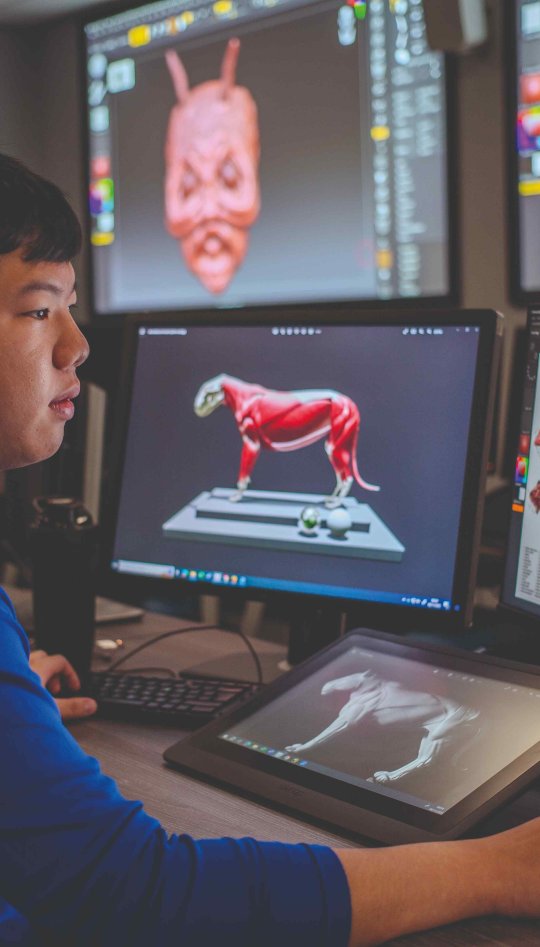
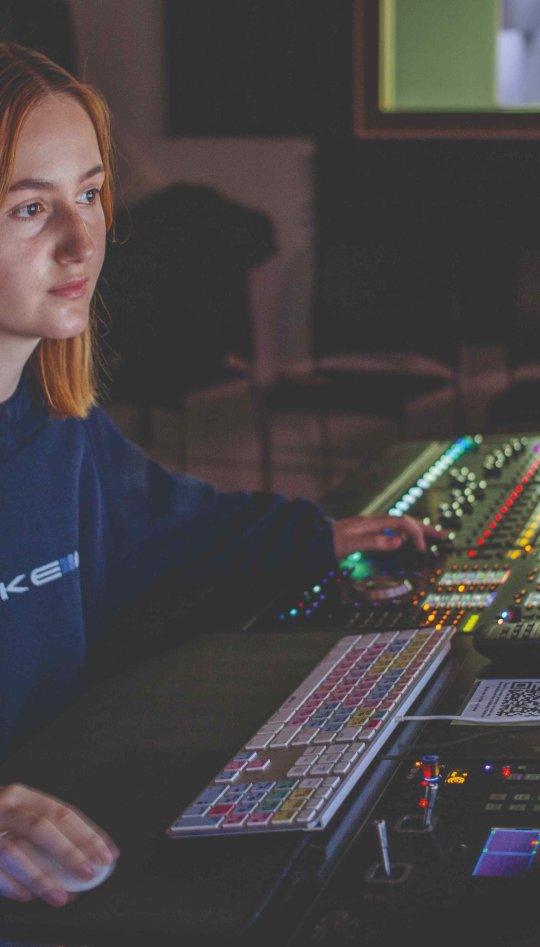
Post Production & Visual Effects BA(Hons)
Create cinematic greatness as a post production and VFX specialist.
Course overview
This is the final frontier in the film-making process, where raw footage is transformed into cohesive, compelling film and visual storytelling is pushed beyond the realms of possibility. This degree covers all aspects of post production and visual effects (VFX) for film, TV and animation, from creating magical sound design to clever scene cutting to ramp up tension. You’ll gain hands-on technical experience in a specialist facility with equipment and workflows that mirror industry practice, developing high-level skills and professionally recognised software qualifications.
You will:
- Refine your skills in areas including picture editing, colour grading, compositing, VFX, rotoscoping, digital imaging, sound design and audio mixing.
- Gain intensive, hands-on technical and craft experience of image and audio post-production equipment, workflows and software.
- Gain recognised industry software certifications as an optional part of the course, giving you the edge over your peers.
- Have the opportunity to participate in live client briefs as well as short and feature films through our Sound/Image Cinema Lab.
- Benefit from our industry links with the likes of Adobe, Avid, Blackmagic Design and Arri, as well as numerous UK-based and international post houses and VFX studios including Framestore, ILM and Envy amongst many others.
You will also engage in our weekly InTo Industry programme of guest speakers and alumni. You’ll learn directly from leading practitioners and connect with our extensive global alumni, helping you to build your network from day one. Recent guests have included Nikki Atkinson (previs/postvis, The Matrix Resurrections, postvis, Rogue One: A Star Wars Story), Mark Connell (Production Designer, Radiohead: Follow Me Around and The Chemical Brothers: We’ve Got To Try) and Graham Wild (Dubbing Mixer, Our Planet, Blue Planet II and Planet Earth II).
This course is accredited by CILECT, Albert, AVID, and ARRI:
Course details
On this Post Production & Visual Effects degree, you'll have the opportunity to gain a BA(Hons) degree over three years or the option to study Post Production & Visual Effects BA(Hons) with an Integrated Foundation Year and/or professional placement options.
You'll develop a strong skills base and a working knowledge of industry practice by responding to an exciting and diverse range of post production and visual effects challenges. With access to professional-standard facilities and software including Avid Media Composer, Pro Tools, Houdini, Maya and Nuke, the chance to collaborate with multi-skilled teams and opportunities to learn from industry leaders, you'll graduate with a diverse portfolio, invaluable connections and the entrepreneurial skills to start making an impact.
In your first year, you’ll strengthen your foundational skills and develop crucial knowledge of industry practice including workflows and current technologies. This will give you the essentials to learn across all three strands: audio, video and VFX, at an equal level. You’ll work in professional-standard facilities and collaborate with your peers on post production and visual effects projects, building your portfolio and developing your technical and creative skills.
Modules
Audio Post-Production Fundamentals
You’ll be introduced to the fundamentals of audio post-production and workflows. You’ll learn how to manipulate sound in both digital and analogue environments using industry-standard software skills.
Exploring the creative aspects of post-production and sound design, you’ll practice recording techniques for dialogue and Foley, while gaining skills in audio editing and mixing. You’ll do this while learning how to integrate software into post-production workflows and have the option to bolster your professional skills by gaining software certifications.
Video Post-Production Fundamentals
You'll learn about the key processes and essential tools used in picture editing. Using industry standard tools such as Avid Media Composer, you’ll gain skills in post production over a series of short intensive projects.
These projects will serve as the start of your portfolio, showcasing your foundational video editing skills while enabling you to cultivate a professional voice and critical thinking approach.
VFX Fundamentals
You’ll expand your understanding of key visual effects (VFX) principles and learn how to use industry-standing computer generated (CG) software applications.
While mastering these essential software skills, you’ll explore areas such as film language and storytelling (storyboarding, blocking shots), previsualisation (previs), VFX pipelines and the basic principles of practical filmmaking and VFX.
Audio Post-Production Competency
You’ll further develop your software skills and continue to build confidence in using industry-standard tools for audio post-production. You'll deepen your understanding and proficiency in working with audio hardware, audio suits and mixing desks, and delve further into the creative side of sound design.
Video Post-Production Competency
You'll develop your editing skills further through Avid Media Composer 110 and delve deeper into the tools and platforms used within post-production, applying these in a creative video post-production project.
VFX Competency
You’ll expand your knowledge of VFX techniques, learning how to combine computer generated (CG) assets with live-action plates to create captivating and lifelike environments. Through hands-on practice, you’ll enhance your software-based knowledge and skills, exploring techniques like rotoscoping and 3D & 2D tracking. You’ll developed a deeper understanding of VXF principles and pipelines, equipping you with the expertise to creatively apply these concepts and overcome challenges in VFX shots.
Your second year is designed to give you greater confidence in your skills and a clearer understanding of your own interests. You'll continue your development on the three core areas of audio, picture and VFX, but also be given that crucial space to refine your own specialist interests. This may be as a specialist editor, sound mixer, VFX supervisor, colourist, sound designer or compositor, among the many other roles open to you. By exploring and collaborating on challenging projects you’ll get to connect with peers from the School of Film & Television, across the wider University and beyond.
Modules
Audio Post-Production Proficiency
You’ll dive into more advanced techniques of audio post-production using industry-standard software, methods, shortcuts and workflows. You’ll attend technical workshops that will take you beyond the basics of using the software, gaining a deep understanding not only of the user interface but also the backend of the software and its operation, learning how to troubleshoot and apply your skills effectively.
You’ll spend more time in front of the mixing desk as you learn various mixing techniques on different hardware. This will broaden your knowledge and help you mix confidently in a dubbing theatre environment.
Motion Graphics & Colour Proficiency
In this module you’ll move from competent to professional in your video editing abilities.
You will gain greater confidence and proficiency with the tools and techniques employed in a professional video post-production workflow. You will move beyond the ‘edit’ to graphic enhancements, colour grading and finishing.
VFX Proficiency
Building on your skills, you’ll tackle more advanced processes, with an emphasis on generating computer graphics with a view to implementing them in live action footage.
You’ll apply what you’ve learned as a VFX artist by working on a short intensive project developing a portfolio around a singular shot or shots and creating supporting materials where necessary.
Collaboration
Within this module you'll get the opportunity to collaborate with peers from across the School of Film & Television and beyond to meet a project challenge by your developing specialist skills. This is your chance to shine as a specialist within your chosen area.
Intermediate Post-Production & VFX Project
In this module you’ll get the chance to put your expertise to the test on a post production and VFX project.
You’ll have the opportunity to delve deeper into the three strands of the course: audio, video post-production or visual effects and examine the multitude of roles and responsibilities across them. You’ll be able to define the scope of your project and produce documentation.
You can choose to take an optional professional placement after your second year on a three-year programme, or after your third year if you’re studying for a degree with an Integrated Foundation Year.
You’ll be responsible for finding your own placement, with support from the Employability team.
Choosing this option will enhance your industry experience and skills while studying.
How you’ll study during your professional placement
You’ll spend time working in a professional context, as part of a business or organisation. This can be in one role, or up to three, and must be for a minimum of 24 weeks.
You’ll develop in-demand workplace skills, deepen your insight into industry and grow your network of contacts, all of which could help you get ahead in your career after graduation.
Throughout this year, you’ll develop a portfolio of work that includes critical self-reflection on what has been learned from the experience. You’ll be required to evidence your experiences, the skills you’ve learned and your professional growth.
Your final year of the degree will be dedicated to refining and mastering your skills as you prepare for a career in industry. You'll cement your learning across your chosen pathway of audio post-production, video post-production or visual effects. You'll have the opportunity to take on a collaborative or entrepreneurial project with peers from across the University, especially in animation, film, television, prosthetic effects, games or on one of the School of Film & Television's funded micro-budget films. You'll also work on an advanced post-production or visual effects project.
Modules
Pre-Production & Development
In this module you’ll be immersed in pre-production and project development practice.
You’ll create an ambitious, innovative and complex project that could form the basis of your Final Major Project. Your ways of working will reflect professional creative industry processes, contexts and culture.
Extended Research Project
This module will give you the opportunity to choose a project in your specialism and run with it. You’ll develop a high level of in-depth subject knowledge making you an expert within your chosen field of Post-Production and Visual Effects.
Futures
Focusing on your professional future, this module will give you the skills you need to transition from university to industry. With input from our employability team and your supervisor, you’ll build your professional profile to enable you to stand out from the crowd on graduating.
Final Major Project
Launching you into the professional world, your Final Major Project allows you to build out a complex project to completion.
Following the industry workflows and processes you’ve learned throughout your degree, you’ll take charge of your creative direction and produce work you’re not only proud of, but which will contribute to your professional portfolio.
Why study an Integrated Foundation Year route?
If you’re taking on a new subject that you haven’t studied in depth before, have been out of education for a while or have a non-standard educational background then an Integrated Foundation Year degree may be the right choice for you. It is a four-year degree with an Integrated Foundation Year to start, which allows you to explore the primary elements of your subject before progressing on to the remaining three years of the BA(Hons) degree.
What you'll study in your Foundation year
If you choose this pathway, you'll study five core modules in your Foundation year. These are all designed to help you explore the foundational elements of your subject. You'll gain relevant technical skills, learn to experiment and take risks, develop an understanding of professional practice, have opportunities to work across disciplines and collaborate with other students on live project briefs.
Modules
Explore
You'll begin your foundation year by working collaboratively with others to explore themes of the future. You'll take risks, experiment through play and be supported to break through barriers.
Technique
You'll take subject-specific workshops and develop essential technical and practical skills in your area of study. You'll also enhance your analytical and organisational abilities.
Apply
You'll work with your peer group to think beyond discipline by addressing a societal or global issue. You'll then showcase your work to your peers and deliver and accompanying evaluation of your process.
Industry
You'll enhance your creative and practical skills in your subject specialism by responding to typical industry briefs, underpinned by focused research and experiments. You'll also gain industry insights through guest lectures and workshops.
Launch
You'll develop your unique identity in your specialism through the production of a self-initiated body of work. Your final project will be the bridge to your next year, fully supported by evaluative reviews and critical analysis of the work you have created.
After the Foundation year, you progress into Year One of the full three-year degree, equipped with a deeper knowledge of your subject, a clear understanding of your strengths, and develop a practical and technical skillset and the confidence to excel in your chosen subject.
If you apply for and enrol onto a degree with an Integrated Foundation Year, you’ll have the option to switch onto a five-year version including a placement year. That means you’ll complete the first three years of your course before completing a placement in industry in your fourth year and returning to Falmouth for the fifth year of your programme.
As part of our process of continuous improvement, we routinely review course content to ensure that all our students benefit from a high-quality and rewarding academic experience. As such, there may be some changes made to your course which are not immediately reflected in the content displayed on our website. During your course, module content may be updated or optional modules withdrawn in order to maintain the best academic experience. Any students affected will be informed of any changes directly.
From module information to course aims and assessment criteria, discover the full course details:
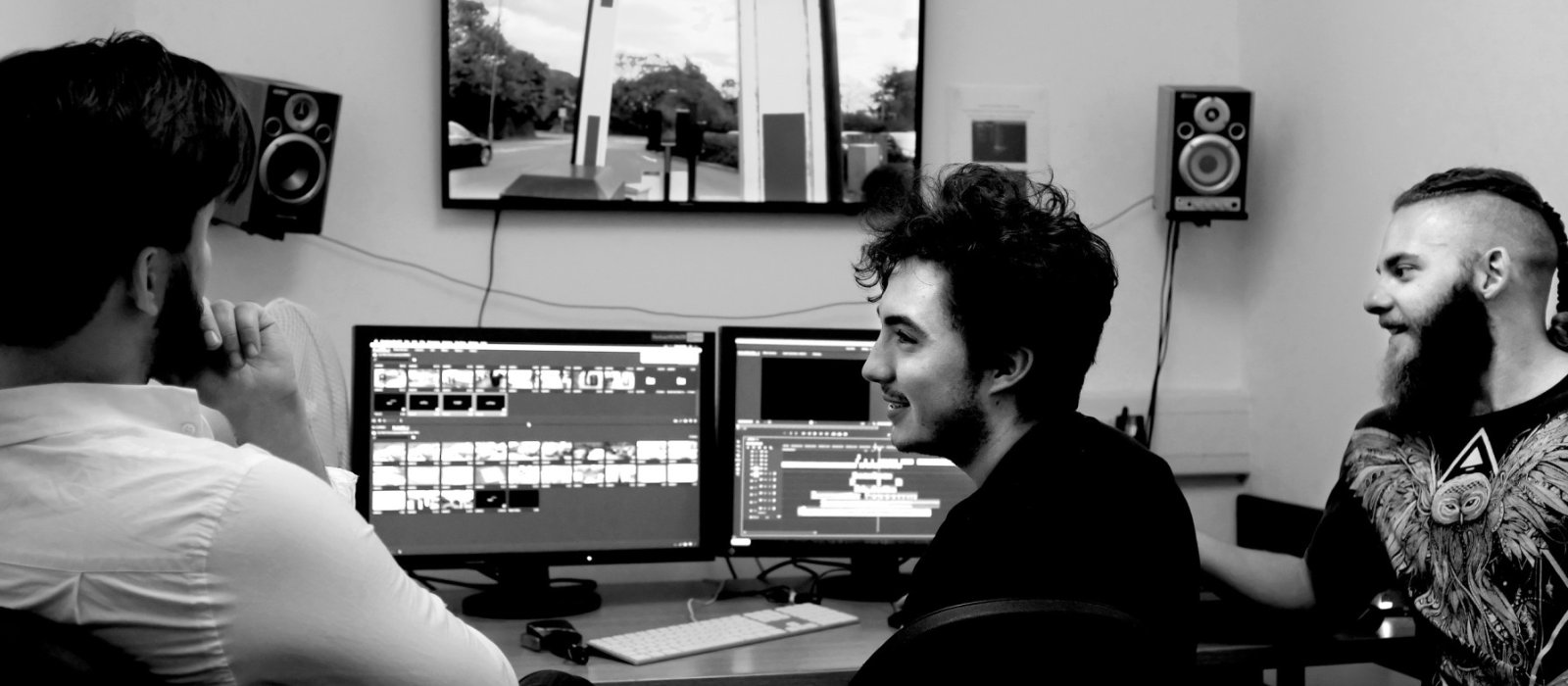
How you'll learn & be assessed
This practice-based degree is underpinned by creative, technical and critical tuition, designed to reflect and meet the demands of today's post production and visual effects industries. Through the first half of the course, you will gain a firm foundation across the three core disciplines – audio, picture and VFX. For the second half of your studies, you will have the opportunity to focus in and specialise. The Post Production & Visual Effects course is delivered through lectures, seminars, workshops, panel discussions, masterclasses and individual tutorials.
Teaching will be complemented by our visiting lecturer programme and opportunities for work experience and internships over the duration of your degree. Learning within an inclusive and supportive environment, you’ll graduate with a varied portfolio of technical and creative work.
At Falmouth, we use a 'digitally enhanced learning & teaching' approach. Your experience will always be predominantly in-person, including seminars, tutorials and studio teaching, with some, more targeted elements, being online either live (synchronous) or pre-recorded (asynchronous). You can read more here.
100% of your assessment will be coursework and presentations. There are no formal exams on this course.
Assessment methods
The BA Post Production & Visual Effects degree employs two main coursework assessment strategies over the year:
- Portfolios – these bodies of works will be comprised from weekly skills development tasks to major projects, depending on what you are studying in each module
- Presentations – some of the more advanced modules in this degree course require presentations of research and development, such as the Extended Research Project module
Your final assessments occur at the end of each module, usually at the end of a study block. You'll also benefit from interim formative assessments partway through modules.
These assessments help ensure that you remain on track with your work. You'll receive feedback on all your work throughout the year. It will be delivered in tutorials and studio-based workshops. At the end of a module, you'll be given detailed written feedback on your work and the opportunity to meet with your assessor to gain further clarity.
If you choose the Integrated Foundation Year pathway for this course, all assessments within your Foundation Year will be 100% coursework based.
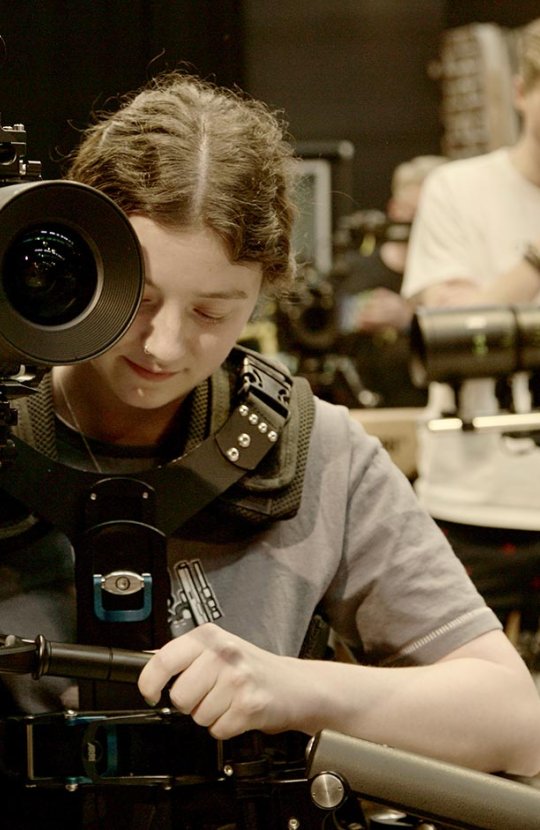
Virtual tour
Discover where you’ll spend your time as a student with our 360° tour, showcasing our facilities, accommodation, town and scenery.
Facilities
The industry-standard School of Film & Television offers a dedicated technical team and professional facilities including:
- 129-seat cinema, with Christie M Series 2.5k projection and 7.2 surround sound
- Five large production studios, including a dedicated green screen studio, a multipurpose/multi-cam studio equipped with three Sony HXC-FB80 studio cameras and integral live gallery, including 4-input Tricaster Ultra HD production system
- Specialist green screen studio with infinity cove & 360-degree subject lighting rig. Access to Xsens motion capture kit and VR/AR/MR equipment
- Nine iMac Pro edit suites with Avid Media Composer and Pro Tools, Adobe Creative Cloud Suite and Da Vinci Resolve
- Two specialist grading suites featuring DaVinci Resolve and 4K preview screens
- Two 28-seat ‘Post Hubs’ for post-production software training, equipped with dual screen Apple iMacs.
- Avid NEXIS shared storage system for seamless access and integration of projects
- 25-seat dubbing theatre with Avid S6 mixing desk and Pro Tools Ultimate
- Foley/ADR suite with access to a wide range of mics, foley traps and props. As well as four further post-production audio suites, all equipped with Pro Tools Ultimate, with industry standard mixing desks
- Two 28-seat post production hubs
- Digital cameras (HD to 5K) including Arri Alexa, RED Gemini, Sony FX6, Canon C500 and XF305, and Arri SR3 and Bolex 16mm film cameras, plus Odyssey 7Q+ External Recorders
- Wide range of hot and cold (LED) lighting equipment including systems by Arri, Dedo & Kino Flo alongside traditional blondes and red heads
- Grip and gimbal systems available include DJI Ronin Gimbal systems, Wally Dolly, Indie Dolly, PD1 Dolly, Ronford Baker Sliders, Libec and Camcrane Jibs
- Audio equipment includes Sound Devices 633 mixers, recorders and an extensive range of microphones
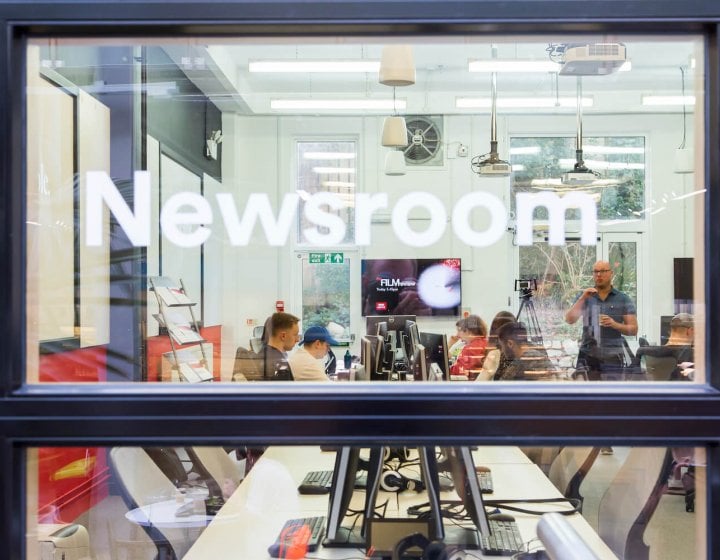
Media Equipment and Facilities
Our industry-level facilities offer everything you need to practice and produce animation, film, TV,...
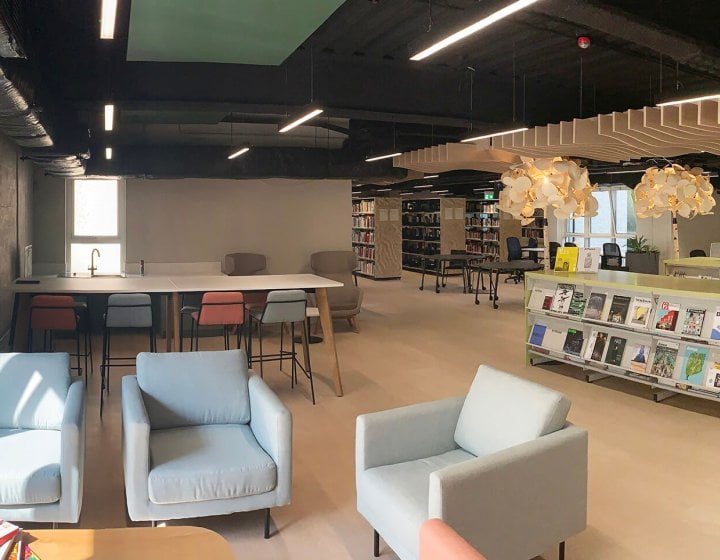
Library Facilities
Offering extensive collections, our two libraries provide a wealth of digital resources, magazines, ...

Sports Centre
Our Sports Centre, on Penryn Campus, includes a spacious gym with up to 90 of the latest, new statio...
Stories from our community
Explore student projects, graduate successes, staff news and industry insights
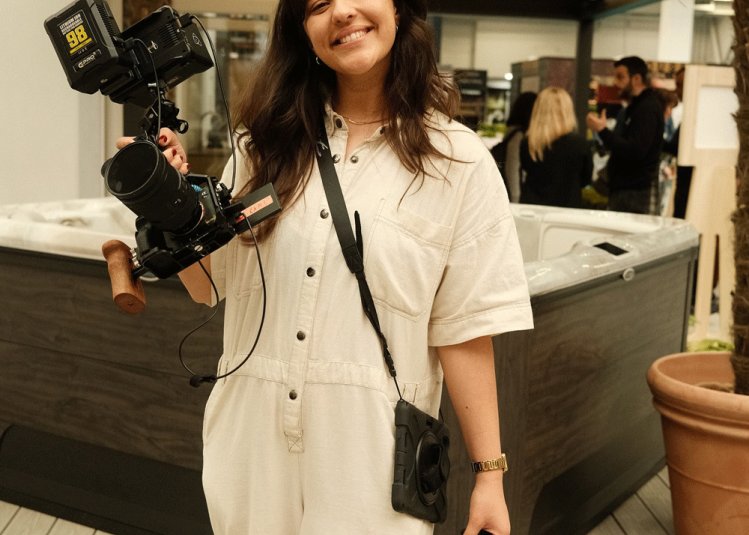
From film student to producer: Libby Gibbons reflects on the joy of working in commercial filmmaking
13 February 2026
Libby Gibbons has gone from studying both a BA(Hons) Film and MA Film & Television at Falmouth to wo...
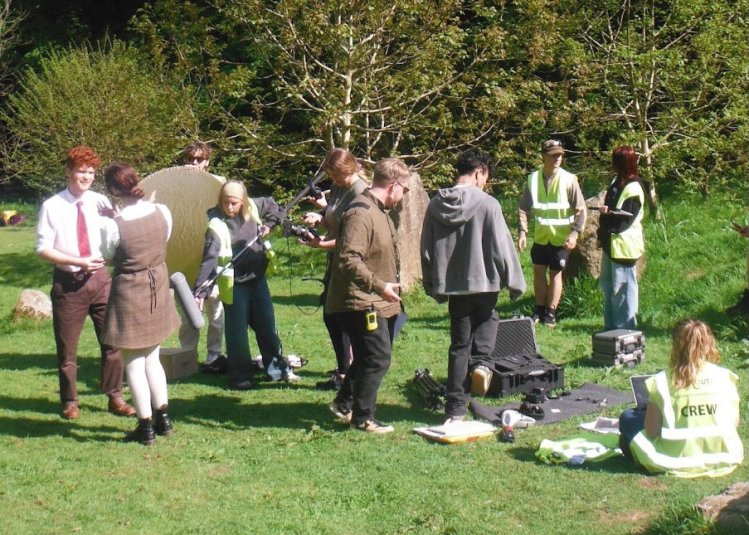
My experience of collaboration at Falmouth
02 February 2026
Alexandro explains how he collaborates with other students across the University.
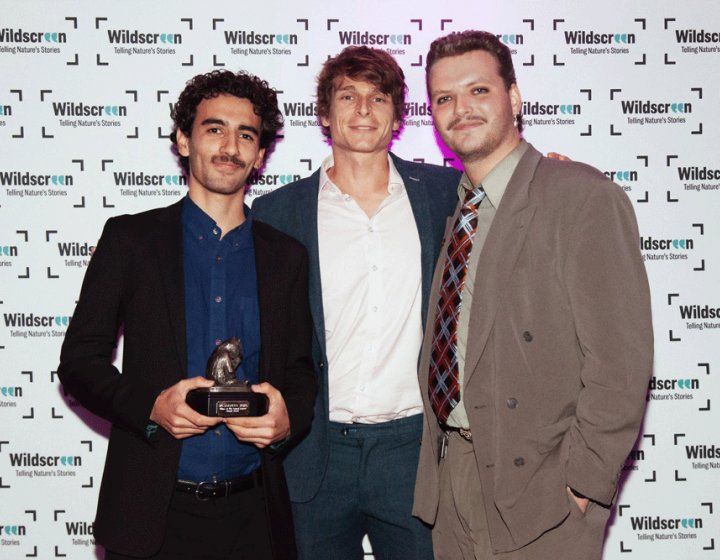
Film & Television alumni win at the Wildscreen Panda Awards
23 January 2026
“Winning at the Wildscreen Panda Awards was honestly a dream come true,” says Adam Radage, a gra...
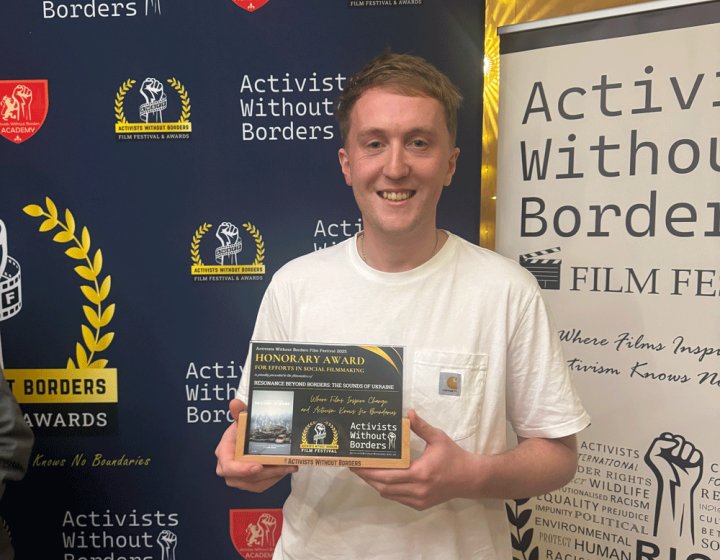
Television alumnus wins honorary award at Activists Without Borders Film Festival
05 December 2025
Since gaining his BA(Hons) Television & Film Production, Tom Waller has forged a career in filming, ...
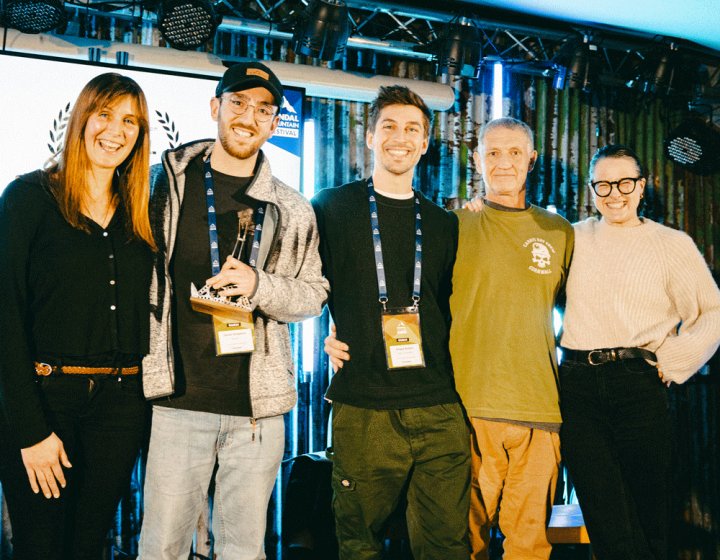
Film alumni take home award for Best Adventure at the Kendal Mountain Festival
02 December 2025
School of Film & Television alumni Dan Simpkins and Angus Breton, along with the rest of the creativ...
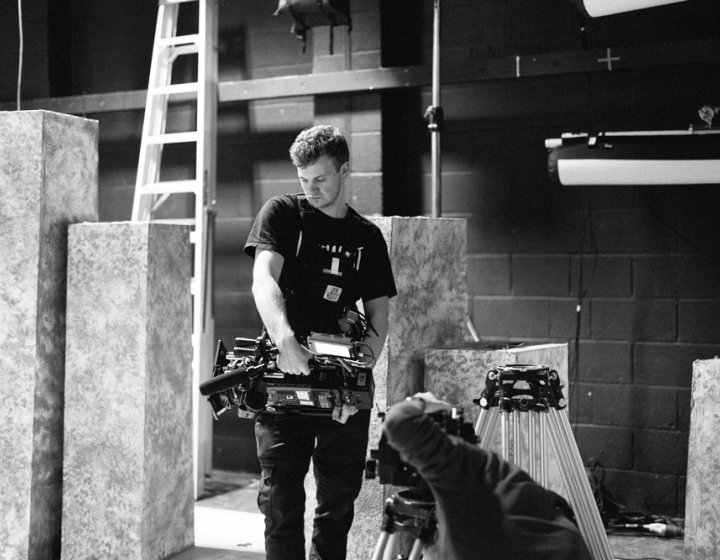
Meet the television alumnus behind the UK Surf Cinema tour
20 November 2025
Since graduating with a Television & Film Production BA(Hons), Theo Cockrean has been part of the ca...

Creative Writing lecturer co-writes new horror film set in Cornwall
14 November 2025
Falmouth University’s Sound/Image Cinema Lab (S/ICL) and Creative Writing BA(Hons) lecturer, Craig...
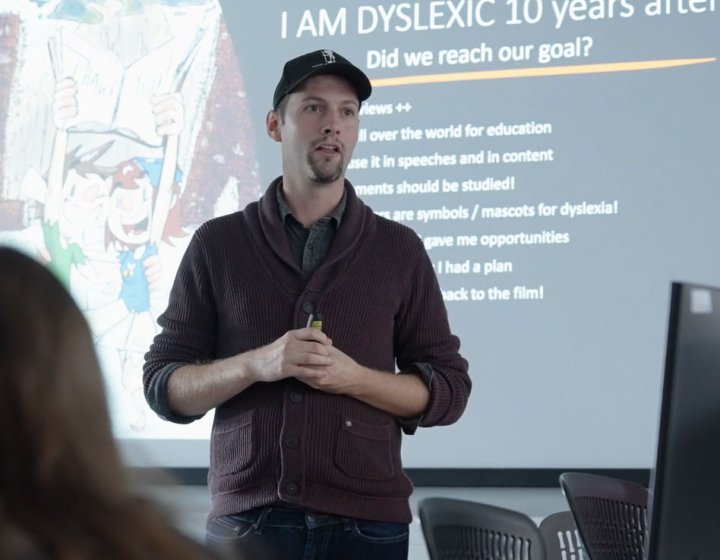
Animation alumnus on the impact of his final year project, I Am Dyslexic
11 November 2025
When Norwegian filmmaker and illustrator Mads Johan Øgaard arrived at Falmouth University, he did m...

Falmouth students go behind-the-scenes at Elstree Studios, home of Strictly Come Dancing
10 November 2025
Final year Television & Film Production BA(Hons) students recently had the exciting opportunity to g...

A still from The Severed Sun. Credit Steve Tanner
Falmouth filmmakers on folk horror, community and the Cornish landscape
28 October 2025
Horror films have an enduring popularity amongst film fans, delivering adrenaline rushes and raw hum...
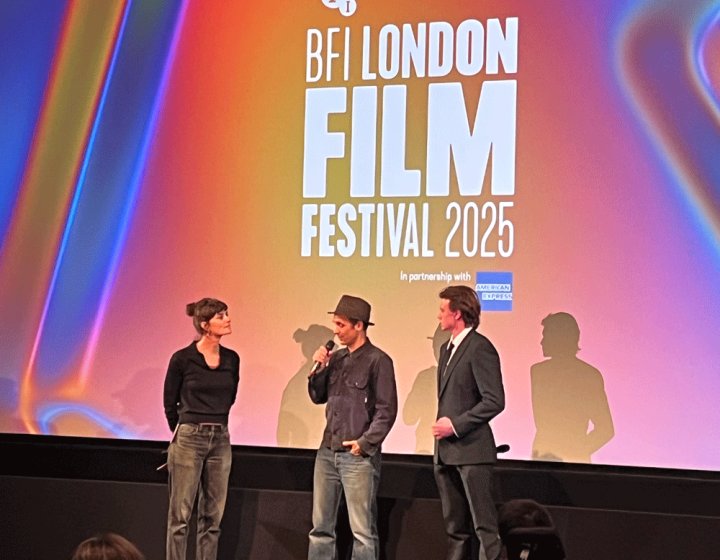
Regional Voices, Universal Stories: How Falmouth’s Sound/Image Cinema Lab is shaping the future of film
16 October 2025
As Rose of Nevada, which had more than 30 film students performing key roles on its production, scre...
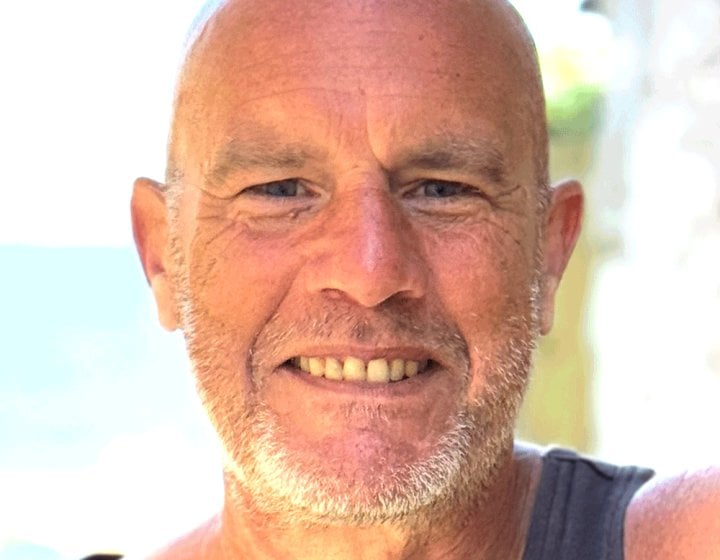
Film lecturer brings his award-winning documentary to Cornwall for its UK premiere
01 October 2025
After a summer of international success garnering accolades in India from Kookai International Film ...
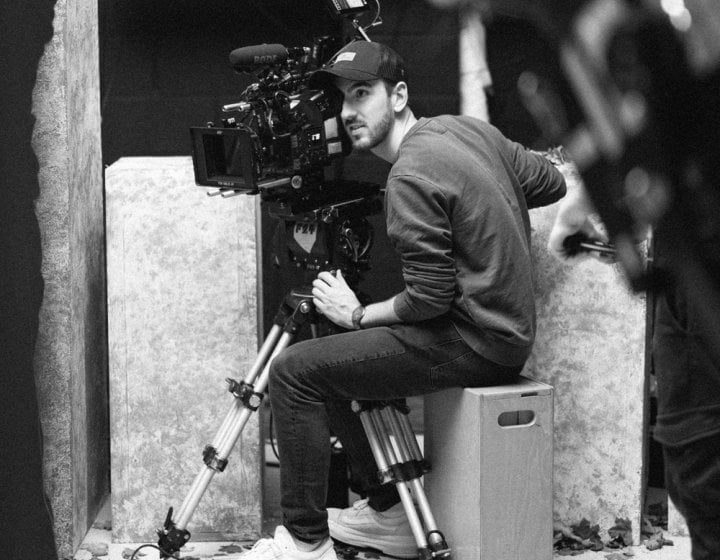
Film alumnus explores men’s mental health, mining and Cornwall’s community in new documentary
25 September 2025
Dan Simpkins is an award-winning documentary filmmaker and Director of Photography, who since gradua...

Animation students named finalists in global Rookies awards
23 September 2025
Two student films from Falmouth’s Animation BA(Hons) have made a splash at The Rookies, an interna...

World premiere success for Falmouth’s Mark Jenkin at Venice
04 September 2025
Critics praise 'Rose of Nevada' for its bold aesthetic and powerful storytelling.
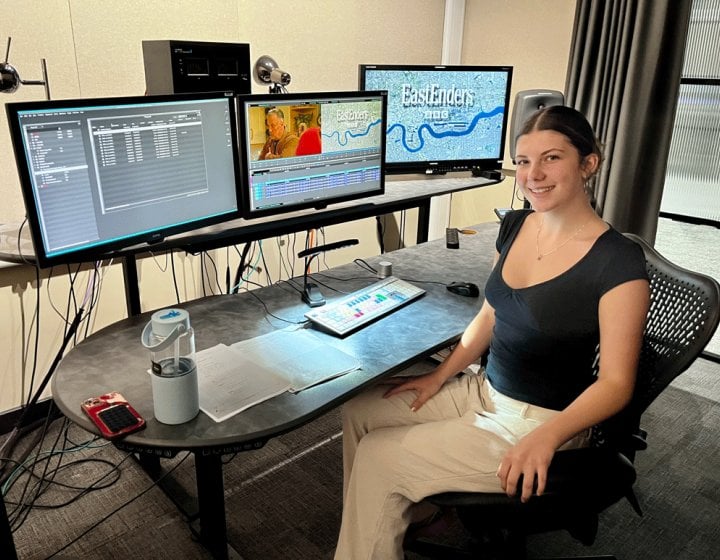
Falmouth students gain post-production experience on EastEnders set
04 September 2025
Over the course of the summer, two second-year Post Production & Visual Effects BA(Hons) students an...
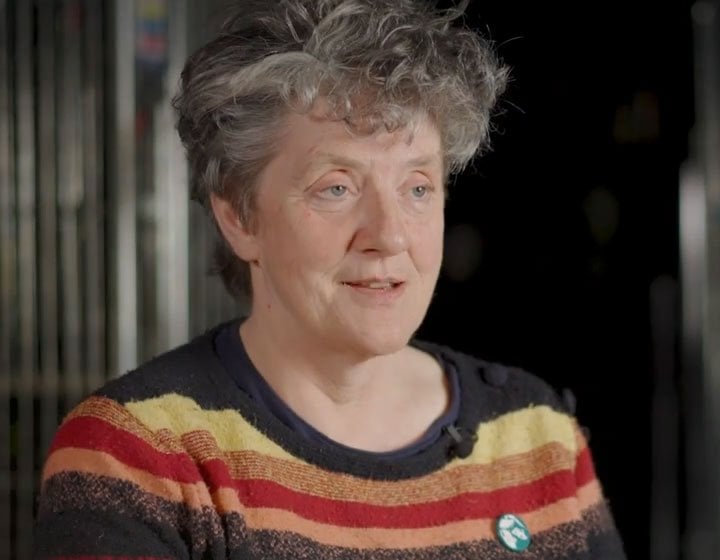
Finding your voice on Falmouth’s online film and TV course
13 August 2025
For many writers, the dream of completing a full-length screenplay is often pushed aside by the dema...
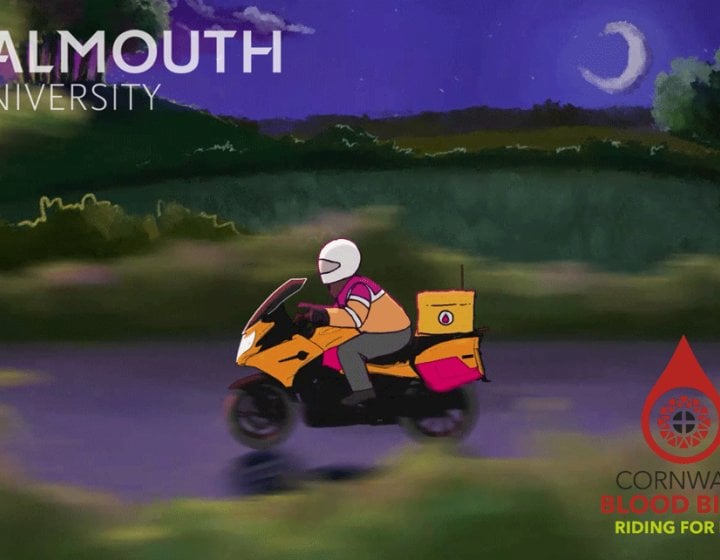
Animation students collaborate with three influential UK charities
13 August 2025
Falmouth University is an institution that nurtures creative talent by giving its students hands-on ...
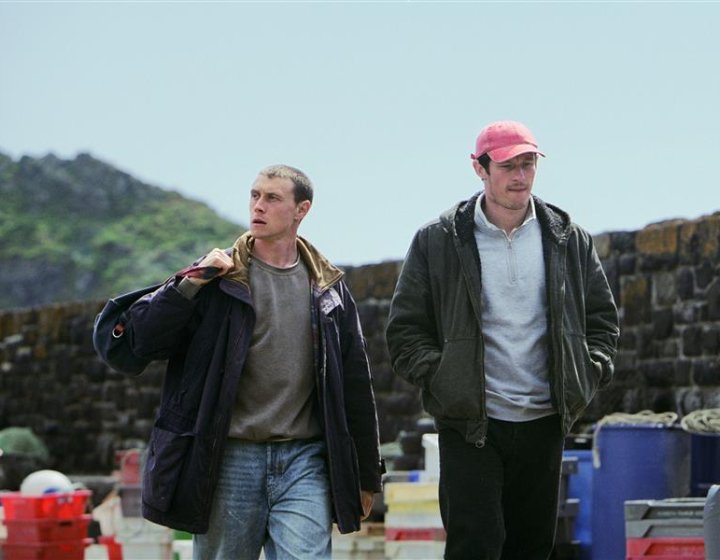
George MacKay and Callum Turner on the set of Rose of Nevada. © Ian Kingsnorth
Mark Jenkin’s Rose of Nevada to premiere at the Venice Film Festival
29 July 2025
'Rose of Nevada' will make its world premiere at the Venice Film Festival, screening in the Orizzont...
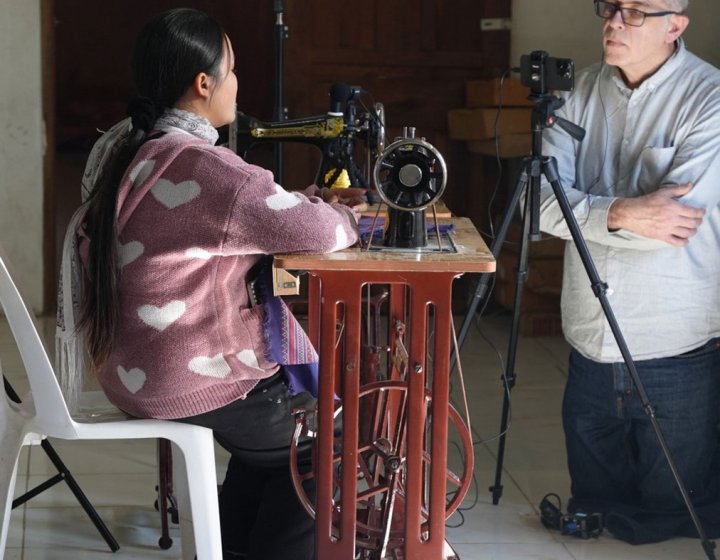
Film & TV course leader on shooting his documentary in Laos
29 July 2025
Armed with a smartphone, gimbal and radio mics, MA Film & Television (Online) course leader Jem Mack...
Staff
Our staff includes academic and technical tutors with extensive industrial experience in post production and visual effects. This experience combines games, feature films, commercials and TV.
You'll also interact with the School of Film & Television's writers, academics, directors, producers, cinematographers, editors, screenwriters, script editors, sound designers, branded content producers and art directors.
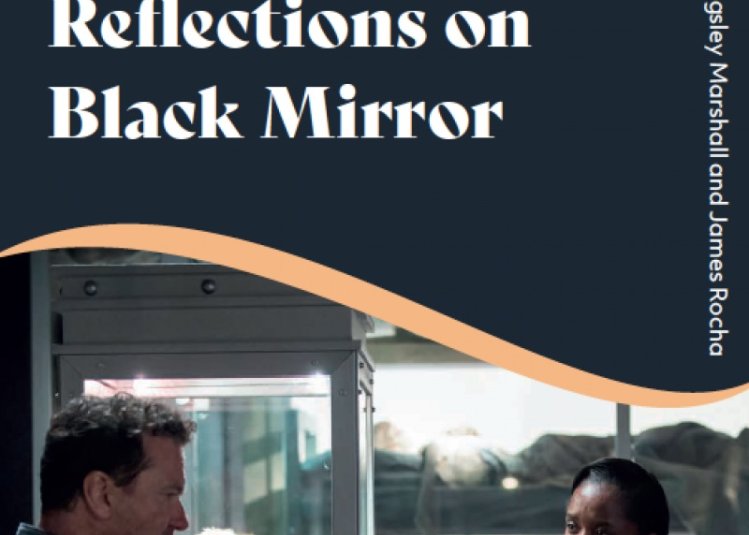
Dr Kingsley Marshall
Head of Film & Television
Dr Kingsley Marshall is Head of the CILECT and ScreenSkills accredited School of Film and Television...
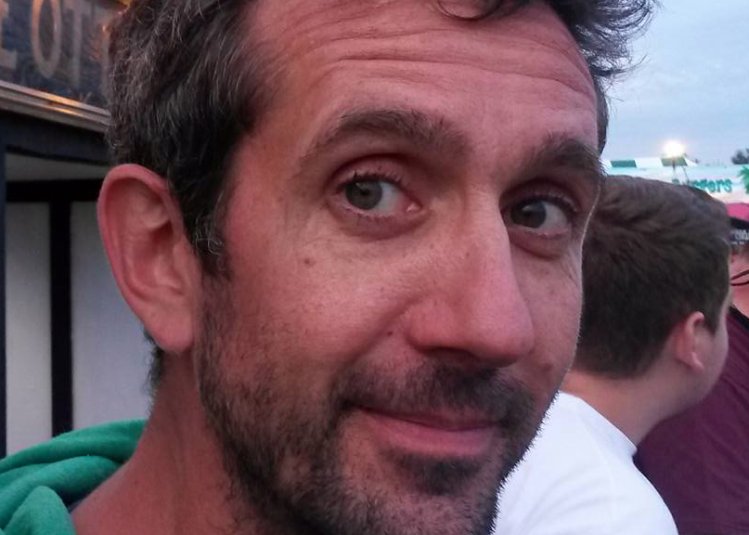
Richard Butler
Lecturer, Post-Production and VFX
After graduating from Nottingham Trent University in 1998 with and HND in Electrical and Electronic ...
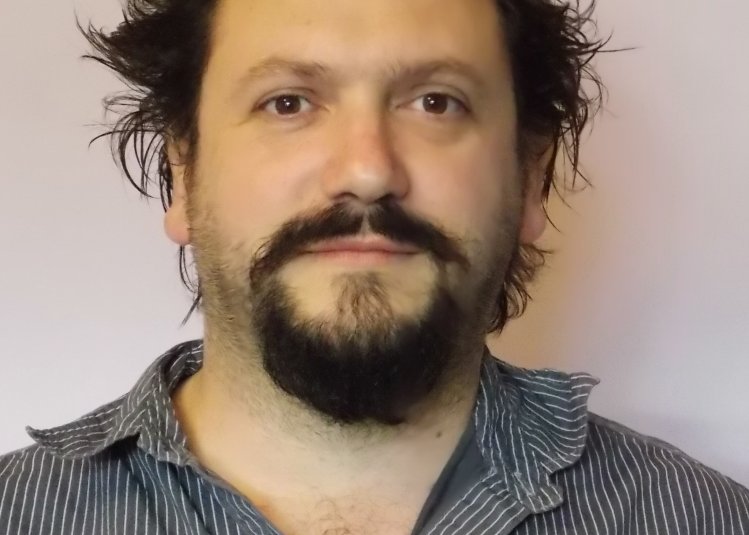
Julian Wright
Lecturer, Post-Production and VFX
From a young age Julian has had a fascination with the creation of imagery, be it stills, sculpture,...

Jared Embley
Senior Lecturer, Post-Production and VFX
I am a Visual Effects artist with over 15 years of professional experience spread throughout the wor...
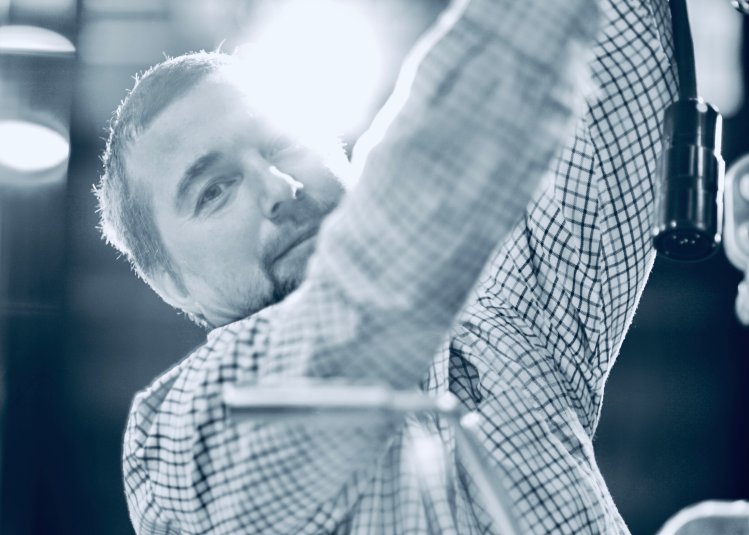
Laurie Bowles
Senior Technician of Camera & Lighting
Laurie comes from the film making world with an extensive array of practical skills and industry exp...

Peter Felstead
Senior Technician
I joined the University in 1991 when I moved to Cornwall. My first role was to run the photography s...
Some members of staff only teach on specific modules, and your course might not feature every staff member who teaches on the course.

Got a question about this course? Ask our course team now.
Chat to us'I regularly find graduates who have used the [Falmouth] VFX course to springboard themselves into worldwide VFX and animation companies and productions.'
- Matt Tinsley, Post-Vis & VFX Supervisor, Jurassic World: Fallen Kingdom, Mary Poppins Returns, Sherlock Holmes: A Game of Shadows and Spectre
Careers
When you graduate you could forge a career in a variety of post production and visual effects roles, including post production supervisors, VFX producers, editors, colourists, MCR operators, post production sound assistants, data wranglers, Roto artists and technical directors within this developing sector.
Our graduates have worked as:
- Broadcasters including BBC, Channel 4, Channel 5, HBO, ITV and Netflix
- VFX companies including Framestore, ILM, MPC, Pixomondo, Milk VFX, The Mill and Weta Digital
- Centroid, FirstLook TV, Oakwood and WING London
- Camera departments for shows on Discovery Channel
- Film and TV credits of our alumni include: Deadpool 3, House of the Dragon, the Star Wars franchise, Enys Men, Deadpool, Blade Runner 2049, Alice Through the Looking Glass, Belle, the Mission: Impossible and Bond franchises, Peterloo, Broadchurch, The Apprentice, Squid Game, and The Great British Bake Off
Recognition for our graduates:
Our graduates’ work has been featured at BAFTA, BIFA and Academy Award qualifying festivals, secured development from the BFI and BAFTA, and been published in titles including Total Film, The Telegraph, The Guardian and Little White Lies.
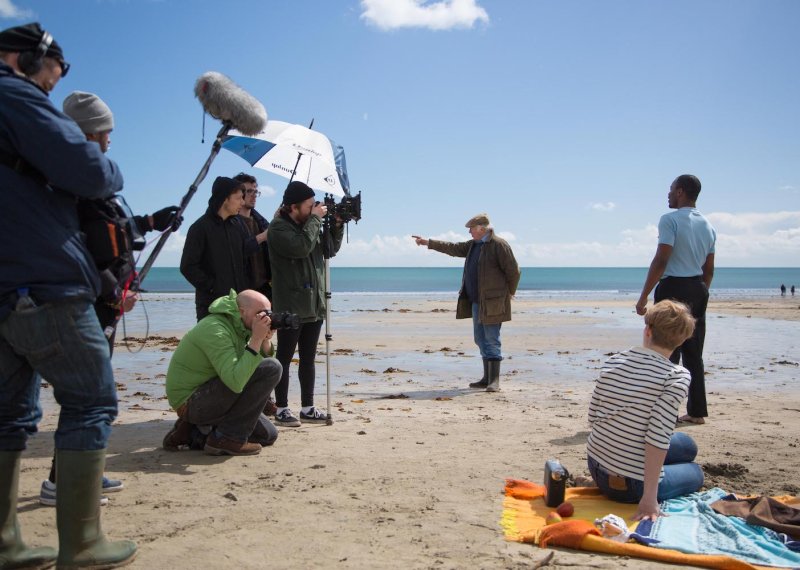
With British TV and film production at an all-time high, there has never been a better time to enter this industry.
How to apply
Ready to apply for 2026?
You can apply for our undergraduate degrees via UCAS. You'll need our university UCAS code (F33) as well as your course code (which you'll find on your course page) for your application.
Applying as an international student?
There are a number of different ways to apply to study at Falmouth as an international student. Find out how you can become part of our creative community.
| Course route | UCAS code |
|---|---|
| Post Production & Visual Effects BA(Hons) three year degree | W614 |
| Post Production & Visual Effects BA(Hons) with Integrated Foundation Year | FY25 |
| Post Production & Visual Effects BA(Hons) with professional placement | PY55 |

Application advice & interview information
Go to ToolkitFor starting your studies in 2026
UK applications: 14 January 2026 (for equal consideration)
Applications after the 14 January will be considered on a first-come, first-served as long as there are places available. Apply for this course now.
For starting your studies in 2027
UK applications: 13 January 2027 (for equal consideration)
International fee payers
International fee payers can apply throughout the year. But we recommend applying as early as possible, to make time for visa and travel arrangements.
We consider all applications on their own individual merit and potential.
Our diverse community is creative, innovative and entrepreneurial. We recognise that these qualities aren’t always shown in academic grades alone. That’s why, while many of our applicants achieve high academic grades, we also welcome those who can demonstrate their potential through an exceptional portfolio or performance.
We welcome applications from all subject backgrounds, whether you’ve specialised in STEM, the arts or humanities. Find out more about our Entry Requirements here.
Course routes & entry requirements
BA/BSc(Hons) three year degree: minimum 64 UCAS Tariff points
BA/BSc(Hons) four year degree with professional placement: minimum 64 UCAS Tariff points
BA/BSc(Hons) four year degree with Integrated Foundation Year: minimum 32 UCAS Tariff points
At Falmouth, we'll consider the equivalency of your specific qualifications against our entry requirements and support you through your application journey.
View our International Entry Requirements
Language requirements
For applicants whose first language is English we require you to have or be working towards GCSE English Language Grade 4 (C), or equivalent.
If English is not your first language you will need to meet the same standard which is equivalent to the IELTS Academic 6.0 overall score, with at least 5.5 in Reading, Writing, Speaking and Listening. We accept a range of in country equivalencies and approved tests.
If you need a student visa to study in the UK, you may need to take a recognised language test. You can read our English Language Requirements for more information.
Fees, costs & funding
Tuition fees
| Annual tuition fee | Student |
|---|---|
| £9,790 per year | Full-time UK |
| £19,950 per year | Full-time EU/international |
| £1,955 per professional placement year | Full-time UK and EU/international |
| £9,790 per Integrated Foundation Year | Full-time UK |
| £19,950 per Integrated Foundation Year | Full-time EU/international |
| Annual tuition fee | Student |
|---|---|
| £9,535 per year | Full-time UK |
| £17,950 per year | Full-time EU/international |
| £1,905 per professional placement year | Full-time UK and EU/international |
| £9,535 per Integrated Foundation Year | Full-time UK |
| £17,950 per Integrated Foundation Year | Full-time EU/international |
Tuition fees for September 2027 will be confirmed in summer 2026.
Tuition fees are set annually and are subject to review each year. The University may therefore raise tuition fees in the second or subsequent years of a course, in line with inflation and/or the maximum permitted by law or Government policy. Students will be notified of any changes as soon as possible.
The figures above don't include accommodation and living costs
Typical course costs
- £100 - Recommended reading
- Access to your own laptop is beneficial, but not essential, you will have access to our IT suites and software
- If you want to invest in your own headphones (you can loan them from our stores), ideally go for closed back headphones with a good frequency range, for example AKG, K72, K92, Sennheiser HD280 Pro or Beyerdynamic DT770 Pro
Optional study trips
- £600 – FMX Stuttgart (annual, optional trip)
- £250 – London VFX Festival & Escape Studios Visit (annual, optional trip)
If you need to bring equipment or materials with you, these will be outlined in your Welcome Letter.
Do you need a laptop / software? The short answer is no. Although having access to your own laptop can be beneficial, it is not essential. You will have access to all the software needed in the studios, which are open from 08:30 until 22:00 Monday to Friday and then Saturday mornings. There are additional PCs in the library for any late-night word processing that you might need to do.
It is also worth noting that much of the software we will be using can be heavy / demanding on the computer's recourses (Processor, RAM, Graphics card etc). And although some of the software is available for free with a student licence many of the applications are not free. Oh, and to add to this we work across both mac and PC systems.
Once term starts, you will have access to and training on all the software we use. This will be from the ground up. However, if you have access to a PC or Mac and can download the trial versions it would be great to familiarise yourself with the interfaces etc. and have a play with the software over the summer.
In the first study block we will be exploring several software packages, the main ones to start being Autodesk Maya, Avid Media Composer and Avid Pro Tools. A quick internet search should bring up the relevant trial downloads.
A Hard drive? You will be given plenty of space on our PixStor and Nexus servers, as well as 1Tb of space on a cloud server (one-drive). All the studio PC, edit suites etc. have a super-fast connection to the servers which in turn have multiple failsafe backups unlike that USB stick with the only copy of your work on it...
Would be nice to get: Although we have a great stock of headphones in the stores that you can book out, your own set of decent quality headphones (not ear buds) would be useful – you’ll need headphones for working in the studio. If you want to invest in your own set, ideally go for closed back headphones with a good frequency range, for example AKG, K72, K92, Sennheiser HD280 Pro or Beyerdynamic DT770 Pro.
Study trips
We look to run several trips to festivals each year, such as FMX (a large VFX festival) in Stuttgart in May. The cost of this trip is likely to be approximately £600. We do encourage the 3rd years to attend but all years are welcome.
The trips are optional, and it is not necessary to attend them to progress through your studies. Where possible we also run trips to local southwest postproduction studios which have no additional costs attached. More info on all these trips will be shared with you once term has started.
Additional typical course costs for Integrated Foundation Year pathway
- £250 for materials
- A laptop/desktop computer
- Adobe Creative Suite
To engage in the digital learning activity, although you will be able to access IT suites on campus, you will benefit from a laptop to access the platforms and tools we use. Depending on your subject, you may need a specific type of computer. If you're unsure about what you might need, please contact our course advisors.
Technology
A laptop will be an essential piece of equipment along with a reliable broadband connection (if you are living in University accommodation you will have this).
Note: The following technical advice relates specifically to the three-year degree that you are progressing into on successful completion of your Integrated Foundation Year (IFY), so this is a chance to get ahead of the expectations and to begin to consider purchasing an appropriate tablet and related equipment also.
Advice in terms of spec is to get a machine with a good graphics card (for video editing/rendering), good processing speed, a minimum RAM of 16gb and SSD of 250gb at an absolute minimum.
You can use this website to research what you might need: www.pcspecialist.co.uk/custom-laptops/. If you are a Mac person then the recommendation is for a Mac book Pro with a minimum of 256gb hard-disk space, 16gb of RAM with either the Multicore Intel processor with 64-bit support or the M1 Apple Silicon processor running on macOS Sierra (v 10.12) and later or Big Sur (Apple M1 silicon).
You will be taught on/with the platform (Windows PC or Mac) most appropriate to industry standard. Some of the software delivered on the course may not run on a Mac platform, but you will be able to access this software on campus or via remote log in to the PC studios.
We support Wacom tablets (as our computers have the drivers for the Wacom range) and you will need to have your own when you arrive. You can expect to spend between £60-£300 depending on your budget, buy the best you can afford.
Suitable models:
- Wacom Intuos, Cintiq, PL Tablet Drivers/Software - 6.3.33-3
- Wacom Bamboo tablet drivers/software - 5.3.5
- Wacom Bamboo tablet drivers/software - 5.3.5
- Bamboo Create, Capture, Connect, Splash, Bamboo CTL, Bamboo CTH, and One by Wacom
What you’ll need to get:
- External hard drive (minimum 1TB) for backing up your own work.
- USB memory sticks (minimum 32 GB) as a temporary storage solution.
*These can also be hired form our Stores at SOFT
Would be nice to get:
- Good quality headphones – you will need these for working in the studio and for your sound-based projects. Ideally closed back headphones with a good frequency range, for example AKG, K72, K92, Sennheiser HD280 Pro or Beyerdynamic DT770 Pro.
The price of equipment may vary, but you can expect to spend approximately £130 on these.
Smartphone
Even the most basic smartphone with a working camera will be sufficient for you to experiment with expressing yourself and developing your narrative storytelling to supplement the use of the bookable resources.
Clothing
You will be expected to work in all sorts of locations and weather conditions. It is therefore highly recommended that you come fully prepared with the right sort of personal clothing to protect yourself from the elements and to meet risk assessment requirements.
This list is not exclusive, so please use it as a guide; you should be able to equip yourself for the outdoors for approximately £150 (some companies offer student discounts so be sure to check):
- Waterproof jacket
- Warm headgear
- Strong waterproof boots/shoes
- Gloves
- Waterproof trousers (working all day in wet jeans is particularly unpleasant!)
- Warm/thermal top (and bottoms for good measure!)
- Mobile phone for emergencies
Typical Costs
Typical course material costs:
- £150 - Recurring annual costs may include printing and stationary.
Study trips:
There are several IFY field trips, and you will need to allow for some costs for student contributions towards coach hire and exhibition entry. Total annual cost of day trips approximately £60.
If you want to attend the planned IFY week-long residential trip to London in the Spring of 2026 then you will need to plan for a £100 deposit payment shortly after arriving on the course, to secure a place, and to budget for a total trip cost of approx. £40
Funding
For information about funding available, please visit our student funding pages.
Ask a student
What better way to find out about life at Falmouth University than by asking our current students?
From course details and academic support, to the social scene and settling in, our students are ready and available to answer any questions you might have. Simply set up your account, send them a question and they'll get back to you within 24 hours.
Similar courses
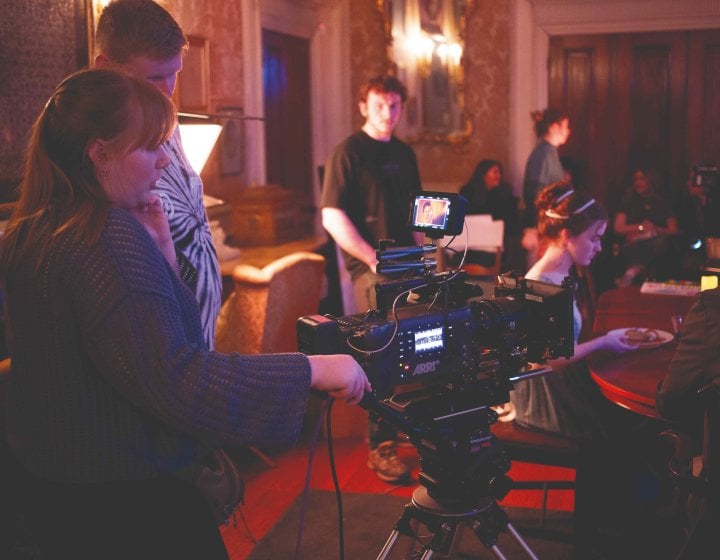
Television & Film Production BA(Hons)
Discover how to create everything from high-end dramas with full scale crews through to fast moving ...
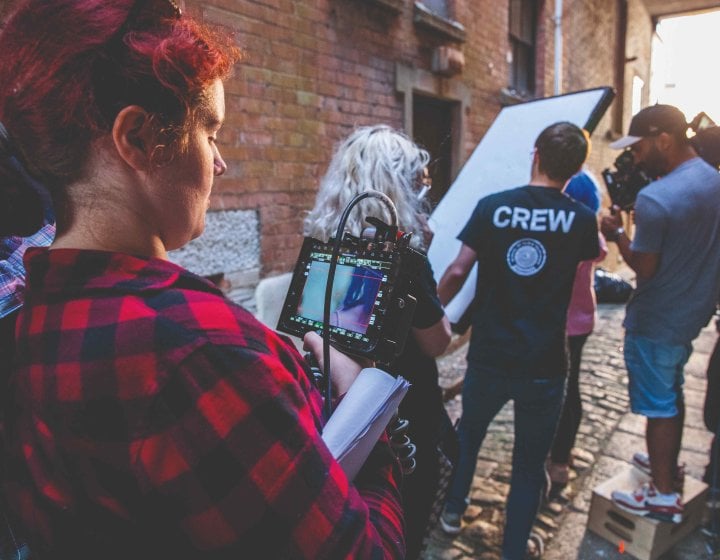
Film BA(Hons)
Develop your filmmaking abilities, honing your practice and deepening your understanding of cinema. ...

Animation BA(Hons)
Bring your ideas to life through the world of animation. We’ll support you in developing original,...
Open Days and events
From visiting campus to online application advice, get all the information you need about joining our creative community.
Find an event
